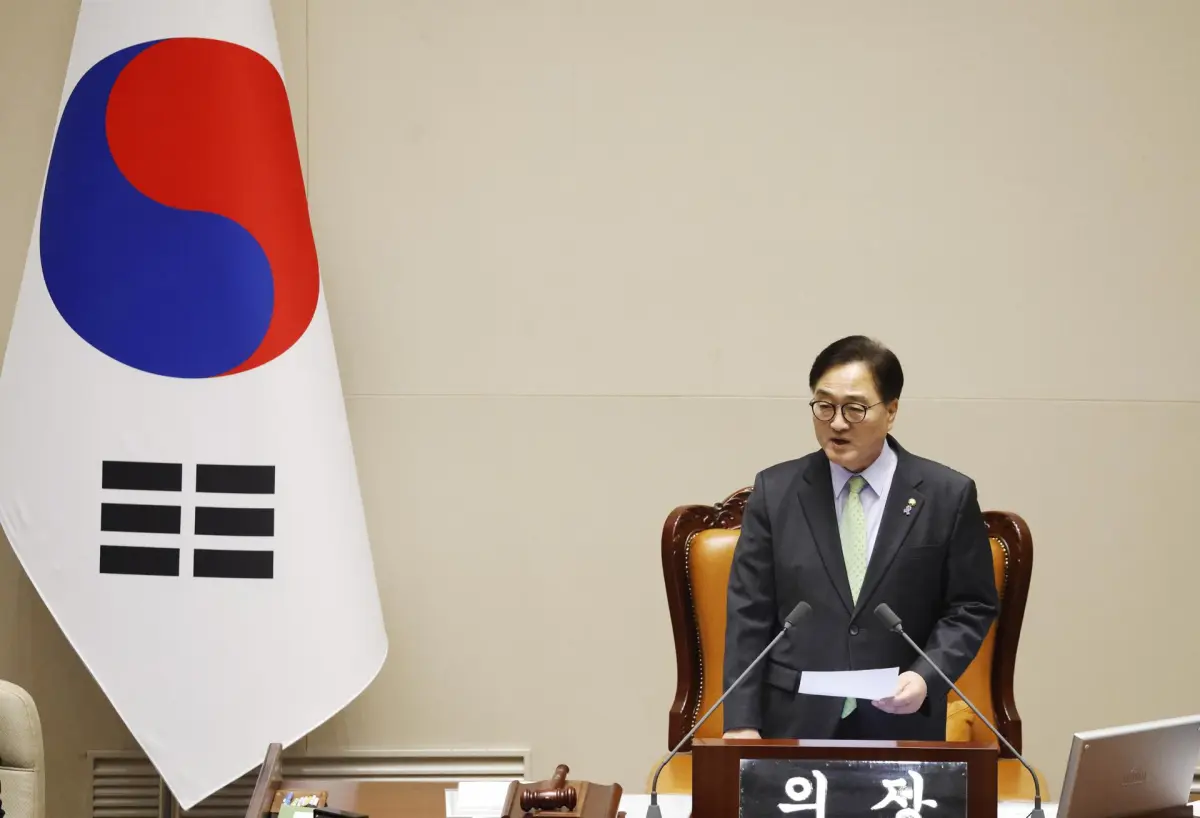
The crisis in South Korea does not stop. The siege on South Korean President Yoon Suk-yeol within the framework of the investigation into his declaration of martial law last week is becoming increasingly tighter after former Defense Minister Kim Yong-hyun tried to remove himself this Wednesday. life after being arrested for his responsibility in the riot.
And, at the same time, the opposition was scheduled to present a second parliamentary motion this Wednesday, after the first failed last Saturday, to try to remove the president, a possibility that is becoming increasingly important as several deputies from the ruling party have indicated their intention to participate in the vote this time.
Also read: Uncertainty in Venezuela one month before the presidential inauguration: the keys to the crisis
What happened to the former minister?
Late this Tuesday, a few hours before a court issued an order for his formal arrest, The former defense minister, who had been urgently detained over the weekend, tried to take his own life before officials at Seoul’s Dongbu detention center prevented him..
Kim, considered a key piece of the plan to declare a state of emergency in the Asian country, is now in a special cell and his life is not in danger, according to spokespersons for the detention center.
SAUL LOEB/AFP
Prosecutors, who believed there was a danger that Kim – who apparently changed phone numbers several times and deleted conversations on the Telegram application after the state of emergency – would destroy evidence, accuse him of insurrection and abuse of power to obstruct the exercise of basic rights in the six hours that martial law was in effect between Tuesday and Wednesday of last week.
With Kim’s formal arrest, it is believed that the investigations into the president, whom is also being investigated for insurrection and who has been prohibited from leaving the country, may gain traction.
Also read: The United States extends work permits for certain categories of migrants: what you should know
Why did they search the Presidential Office?
In that sense, the police searched several police headquarters in the South Korean capital this Wednesday – and detained the main officials of the National Police Agency and the Seoul Metropolitan Police – in addition to the Presidential Office, where they faced resistance from the security service. presidential security to access the president’s office.
The agents were looking for, among other things, the minutes of the meeting that Yoon’s Cabinet held before proclaiming martial law on December 3.a meeting that lasted just five minutes and of which there apparently are no detailed records, as the Ministry of the Interior later clarified.
For its part, the Office for Corruption Investigations of High-ranking Officials today left the door open to request the urgent arrest without a court order of the president given the seriousness of the possible crimes attributed to Yoon, who, among other things , is accused of insurrection.

CHRIS JUNG/NurPhoto via AFP
Presidents in South Korea cannot be prosecuted during their term, with the exception of the crime of insurrection, defined as that committed by an individual or individuals who use “violence with the purpose of usurping the national territory or subverting the Constitution.”
Also read: What’s next for Luigi Mangione, captured after being accused of killing Brian Thompson in New York?
The law stipulates that those who participate in an insurrection can be punished with sentences ranging from a minimum of five years in prison to life imprisonment or the death penalty (on which there has been a moratorium in South Korea since 1997).
Yoon and Kim’s roles
The statements of soldiers involved in the implementation of martial law begin to shed some light on the roles played by the president and the former Minister of Defense during the state of emergency.
In his statement on Tuesday before the parliamentary Defense Committee, Kwak Jong-eun, who until last Friday was the commander of the “black berets”, the special operations unit that was sent to the National Assembly, said that Yoon himself He told him over the phone to “force the doors and drag the parliamentarians out” to prevent the deputies from voting in favor of revoking martial law.
Kwak added that, for his part, the Minister of Defense also told him by telephone that “there could not be 100 to 150 deputies in Parliament” so that there would be no quorum in the legislature and martial law could remain in force.

JUNG YEON-JE/AFP
The former commander explained that the commanders on the ground agreed that these orders were illegal and would lead to bloodshed, so they did not comply with them.
Also read: Alert in Taiwan: more than 50 Chinese aircraft and warships pass near the island, what is known?
He also indicated that Kim already gave him orders to be prepared for a national emergency situation on the 1st. December, two days before martial law was declared.
A new motion to remove Yoon
The main opposition party, the liberal Democratic Party (PD), plans to present this Wednesday a new parliamentary motion to remove Yoon that would be formally registered tomorrow and voted on Saturday.
The opposition has already announced its intention to continue trying to disqualify Yoon after a first motion on Saturday was boycotted by the ruling and conservative People’s Power Party (PPP), which has said it will advocate for an “orderly” resignation of Yoon in around spring.
However, several PPP deputies have announced their intention to participate in the vote this time and it is believed that they could end up adding the eight votes that the opposition needs for Yoon to be removed from his position.
Source: https://www.noticiascaracol.com/mundo/crisis-en-corea-del-sur-exministro-intento-quitarse-la-vida-y-registran-la-oficina-presidencial-cb20


